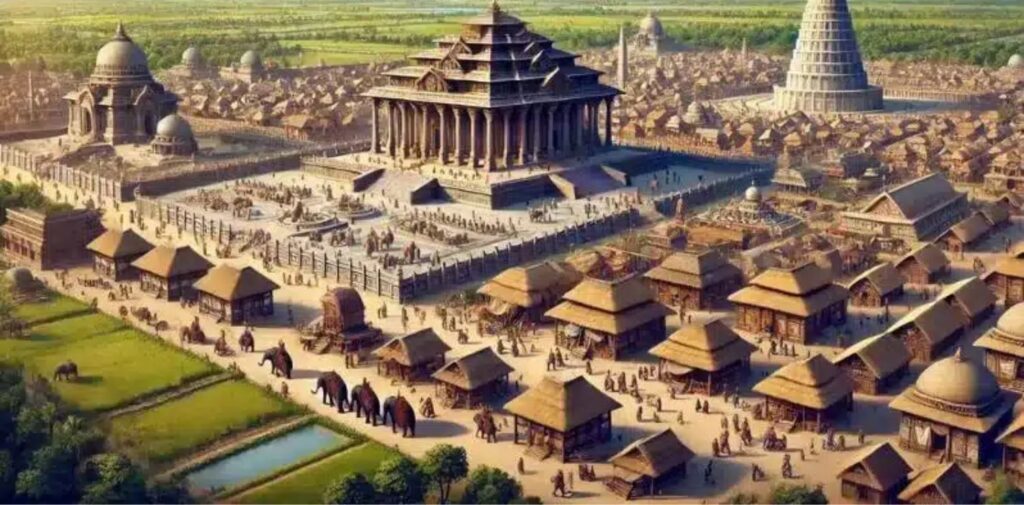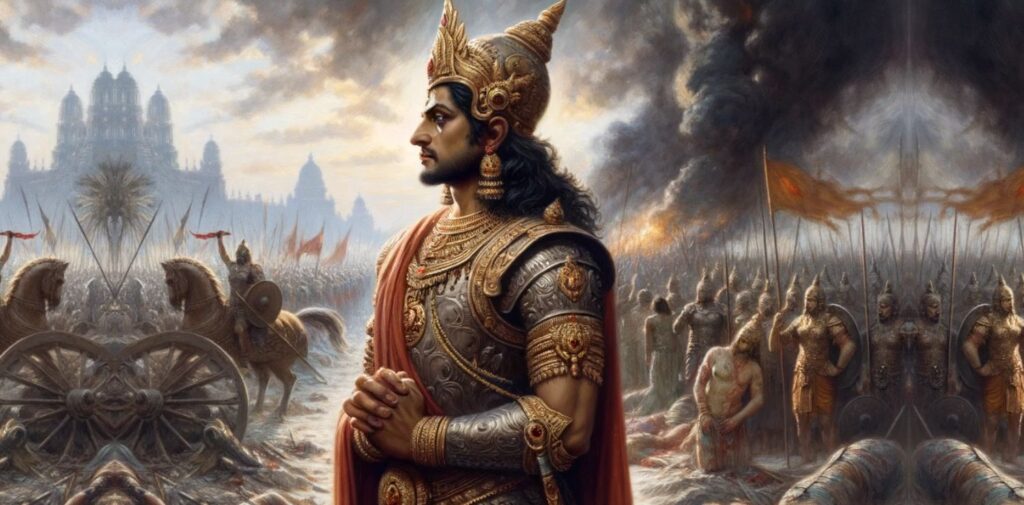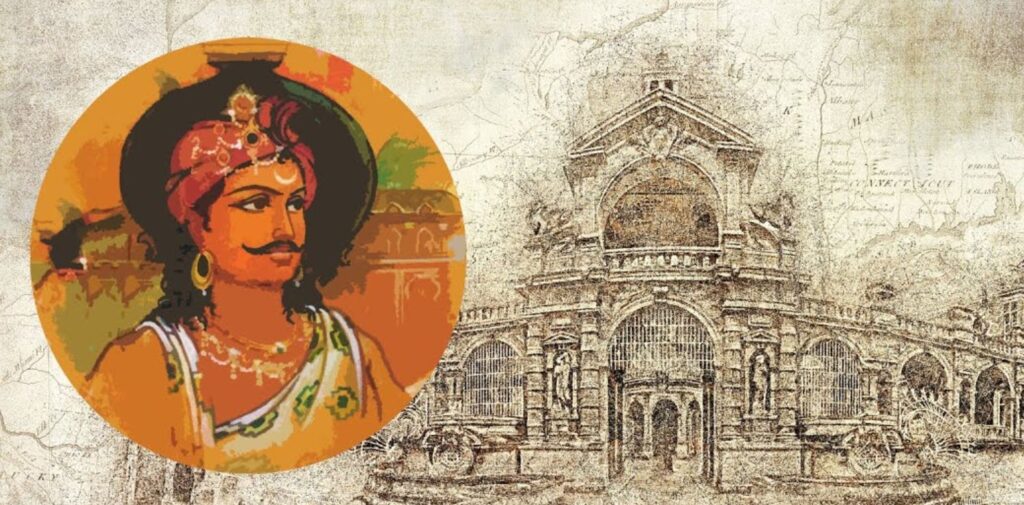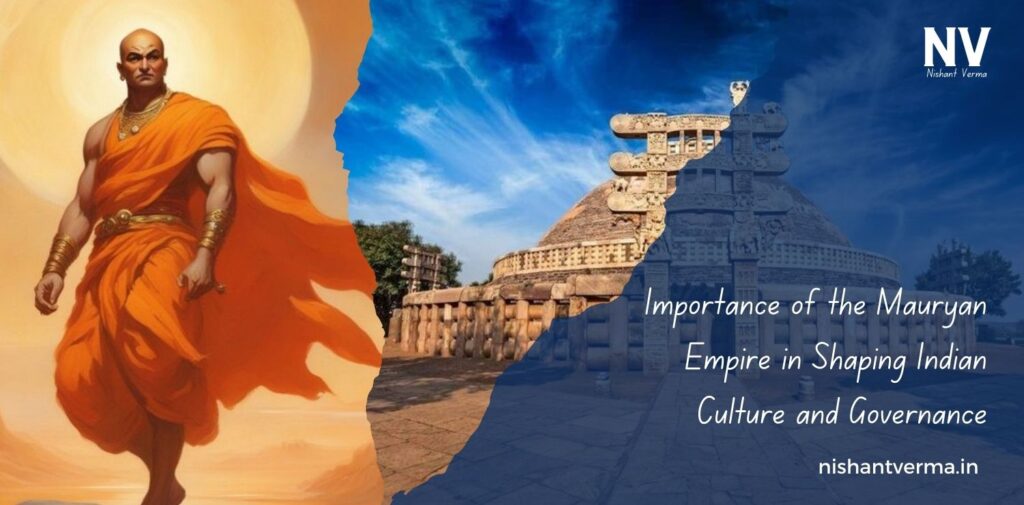The Mauryan Empire, which existed from approximately 322 BCE to 185 BCE, was one of the most significant and powerful empires in Indian history. Under the leadership of Chandragupta Maurya, and later his grandson, Ashoka, the Mauryan Empire made substantial contributions to Indian culture and governance. This empire laid the foundation for much of the political, social, and cultural landscape of ancient India, and its influence can still be seen today in many aspects of Indian life.
Establishment of the Mauryan Empire
The story of the Mauryan Empire begins with Chandragupta Maurya, a young man who rose from relatively humble origins to become the founder of one of India’s largest empires. Chandragupta was guided by his mentor, Chanakya, a brilliant strategist and scholar who helped him establish the empire. Together, they built a powerful state that stretched from the northern regions of modern-day Afghanistan to the southern parts of India.
Chandragupta’s early rule was marked by significant military campaigns, including the conquest of the Nanda Dynasty. By establishing the Mauryan Empire, Chandragupta created a centralized government that would play a crucial role in shaping Indian politics for centuries.

Governance and Administration
One of the most significant contributions of the Mauryan Empire was its sophisticated system of governance. Chandragupta and his successors were able to unite a vast and diverse land under one central authority. The Mauryan Empire was not only geographically large, but it also represented a wide range of cultures, languages, and traditions. To manage this diversity, the empire developed a highly organized administrative structure that was remarkable for its time.
The empire was divided into provinces, each governed by a viceroy or a governor. These governors were responsible for maintaining law and order, collecting taxes, and overseeing the welfare of the people. The empire also had a system of local administrators who took care of the day-to-day management of smaller areas like villages and towns. This decentralization allowed the Mauryan Empire to govern effectively while also respecting local needs.
The Mauryan rulers established an extensive network of spies and informants, known as the Prakrits, to ensure the smooth running of the empire and to gather information about the people and regions under their control. This intelligence network played an important role in maintaining order and preventing rebellion.
Ashoka the Great and His Reforms
While Chandragupta Maurya laid the foundation for the empire, it was his grandson, Ashoka the Great, who brought the Mauryan Empire to its greatest heights. Ashoka was a ruler of remarkable vision and compassion, and his reign is often considered a golden period in Indian history. Initially, Ashoka followed in the footsteps of his grandfather, engaging in military conquests, but after the bloody Kalinga War, he underwent a profound transformation.
The Kalinga War, which took place around 261 BCE, was a turning point in Ashoka’s life. The war caused immense destruction and loss of life, and the suffering it brought to the people deeply affected him. Ashoka embraced Buddhism, renounced further military conquests, and focused on spreading peace, justice, and compassion across his empire.
Ashoka’s embrace of Buddhism had a profound impact on Indian culture and governance. He sought to implement the principles of dharma (righteousness) in his administration. Ashoka’s Edicts, which were inscribed on pillars and rocks across his empire, conveyed messages of ethical behaviour, respect for all living beings, and the importance of religious tolerance. These edicts are among the earliest examples of state-sponsored moral and ethical guidelines, emphasizing values such as non-violence, honesty, and respect for the environment.
Ashoka also promoted the welfare of his people through numerous public works projects, including the construction of hospitals, roads, and wells. His efforts to promote education, health, and social welfare helped improve the quality of life for millions of people.

Contribution to Indian Culture
The Mauryan Empire was also a major force in shaping Indian culture, particularly in the realms of art, architecture, and religion. Under Ashoka’s rule, India saw a flourishing of Buddhist culture, which was supported by royal patronage. Ashoka encouraged the spread of Buddhist teachings across India and beyond, sending missionaries to foreign lands such as Sri Lanka, Central Asia, and Southeast Asia. The Mauryan Empire thus played a crucial role in the spread of Buddhism, which would go on to become one of the major religions of the world.
In terms of architecture, the Mauryan Empire is most famous for the construction of Ashoka’s Pillars. These pillars, which are scattered across India, are monumental stone structures inscribed with Ashoka’s Edicts. The most famous of these is the Lion Capital of Ashoka, which is now the national emblem of India. These pillars are significant not only for their historical value but also for their artistic and architectural excellence. The Mauryan period also saw the development of other architectural works, including stupas, which are Buddhist monuments that house relics of the Buddha.
Art during the Mauryan period was also influenced by Buddhism, with sculptures and reliefs depicting scenes from the life of the Buddha. The Mauryan Empire played a key role in the early development of Indian art, blending indigenous traditions with influences from the Greek and Persian cultures.
Social and Economic Reforms
The Mauryan Empire also made significant contributions to the development of India’s social and economic systems. Ashoka’s administration focused on ensuring the welfare of his subjects, especially the poor and marginalized. He established measures for social justice, including promoting equality before the law and ensuring that the basic needs of the population were met. Ashoka’s efforts to promote trade and economic development helped strengthen the empire’s economy.
The Mauryan rulers recognized the importance of agriculture and trade in maintaining economic stability. They encouraged the cultivation of crops, the development of irrigation systems, and the establishment of trade routes both within the empire and with neighbouring regions. The Mauryan Empire was well connected to the trade networks of Central Asia, the Mediterranean, and Southeast Asia, which helped in the exchange of goods, ideas, and culture.

Legacy of the Mauryan Empire
The Mauryan Empire’s influence on India’s governance and culture cannot be overstated. The centralized system of government, the concept of a welfare state, and the emphasis on ethical leadership set the stage for future Indian rulers. The Mauryan period also played a pivotal role in shaping Indian religious thought, particularly through the spread of Buddhism.
Their legacy continues to be felt in modern India. Ashoka’s edicts, which promoted peace, tolerance, and social welfare, continue to inspire political leaders and policymakers. The cultural exchange that took place during the Mauryan period also laid the foundation for India’s rich and diverse heritage.
In conclusion, the Mauryan Empire, with its sophisticated governance system, emphasis on social welfare, and promotion of cultural and religious values, played an indispensable role in shaping the trajectory of Indian civilization. From the contributions of Chandragupta Maurya to the compassionate rule of Ashoka the Great, the Mauryan Empire left an indelible mark on India, influencing not only its political and social systems but also its culture and religious life.




